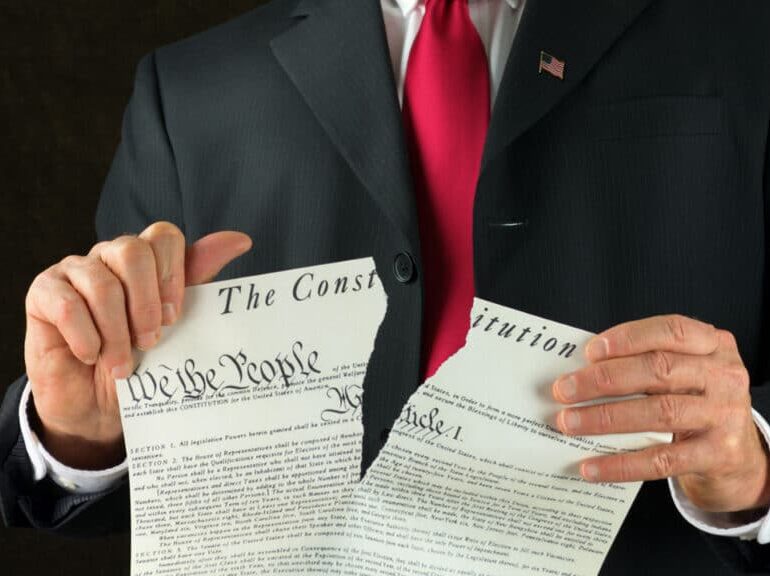
No Emergency Powers in the Constitution
By: Jacob Hornberger
It has become an article of faith that under our system of government, federal officials can declare an emergency, which then purportedly authorizes federal officials to exercise emergency powers.
However, it just ain’t so. There is nothing in the Constitution that authorizes the federal government to declare an emergency or to exercise emergency powers.
Keep in mind that when the Constitution called the federal government into existence, it did not vest the government with the inherent “police powers” that had characterized governments throughout history. Those “police powers” had empowered governments to exercise powers relating to the “health, safety, morals, and welfare” of the people.
Our American ancestors were not interested in that type of government. They knew that governments with inherent police powers inevitably turned into tyrannical regimes. So, it should surprise no one that under the Articles of Confederation, which preceded the government established by the Constitution, the delegated powers of the federal government were so weak that — get this — federal officials didn’t even have the power to tax.
The delegates at the Constitution Convention at Philadelphia, who were ostensibly meeting to simply develop reforms of the Articles of Confederation, came up with a proposal for an entirely new governmental system. However, they knew that if this new system vested the federal government with inherent police powers, our ancestors would never accept it.
So, the Constitution called into existence a government whose powers were limited to those enumerated in the Constitution. There were no inherent police powers. If a power wasn’t enumerated, it simply could not be legally exercised.
Note that there is no power to declare an emergency in the Constitution. There is also no provision for the exercise of emergency powers.
There is a simple reason for this omission: Our ancestors understood that emergencies are the time-honored way that tyrannical regimes have destroyed liberty throughout the ages.
During emergencies, people become afraid. All too often, during an emergency they are eager and willing to surrender their rights and liberties to governmental officials in return for being kept safe. Of course, it’s supposed to be temporary. As soon as the emergency is over, the government is supposed to restore the people’s rights and liberties. But it rarely happens that way, even when officials promise to do so. Instead, all too often the destruction of rights and liberties remains permanent.
A good example of this phenomenon was the Reichstag Fire and the Enabling Act during the Hitler regime in Germany. Terrorists firebombed the Reichstag, which was the German parliament building. Hitler used that act of terrorism to declare an emergency and to ask German lawmakers to grant him temporary emergency powers to deal with the crisis. The Reichstag granted Hitler’s request in what became known as the Enabling Act. But it was only “temporary.” As soon as the emergency was over, Hitler would restore the pre-emergency rights and liberties of the German people. Every time the Enabling Act was about the expire, Hitler dutifully returned to the Reichstag to secure an extension. Of course, by this time his power was omnipotent. There was no way that the Reichstag was going to say no. The Enabling Act was still in existence when Hitler committed suicide.
Another good example was the Franklin Roosevelt regime, which used the Great Depression to declare an emergency and to exercise emergency powers. There was the National Recovery Act, for example, which converted American industries into cartels, much like was happening in fascist Italy. In that instance, the Supreme Court correctly declared the act unconstitutional. But in other instances, the Court let stand the FDR regime’s exercise of emergency powers, such as with the adoption of Social Security, a massive socialist program with which we still live today.
Our American ancestors were wise not to provide any power to declare emergencies and to exercise emergency powers in the Constitution. Too bad 20th-century Americans rejected their wisdom by letting federal officials exercise powers that were not delegated in the Constitution.
This article was originally published at the Future of Freedom Foundation